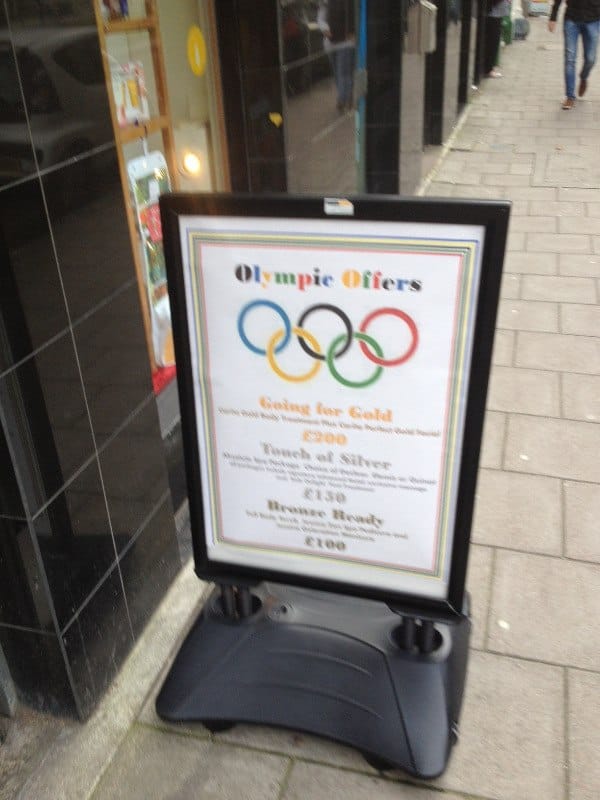The imminent start of the Olympics has brought into sharp focus the issues surrounding copyright for many organisations. The Olympic ring symbol is the most recognised copyrighted image in the world, with a 93% global recognition factor. Companies around the world who are deemed to be using the words surrounding the Olympics and the image are receiving rather annoyed “cease and desist” letters with alarming ferocity.
For our part, we recently worked with Aecom, who provided the entire infrastructure for the London games, including Stadia, parks, transportation hubs and the legacy after the fun has ended. We were initially cautious about even mentioning the fact that our Aecom “Mega Projects” video even featured the Olympics, even when at least 80% of the videos we are finalising now talk about London and the future Rio 2016.
Copyright in general is a contentious issue for any and all corporate video clients. The use of copyrighted images is dangerous territory, which can be extremely expensive if not given due consideration. Understandably, many marketing managers and others who commission video don’t have the knowledge base to circumnavigate the issues, so getting a video production company that understands how careful you need to be is vital. You would be amazed how many don’t!
Imagery/video
The IOC is notorious for being very tribal about their logos and imagery of course, so it’s sensible for the corporate video client to consider them to be a bench mark to concentrate on for their own copyright considerations. Every photo that is reproduced online is owned by someone and that someone has every right to protect their creative work. The only exceptions to this rule are photos that are offered by the copyright holder who allow the photos to be reproduced through creative common licensing.
Imagery
If you reproduce ANY image you might find on Google images (for example) you run the risk of being in breach of copyright and are exposed to being sued by the owner. As it happens *most* people online are guilty of this – however is it worth exposing your organisation to an unnecessary law suit for the sake of a pretty image?
We have a client (who will remain nameless) who had a video made with a number of copyrighted images that were used in conferences around the world. We spent a long time in discussion with the client about alternatives using common licence images but the client was quite insistent. Eventually we agreed to the requests – but amended our contract to indicate where the blame would lie if any copyright holders objected. We weren’t too happy with this (although the video looked great) and we would suggest to clients to give this a wide berth.
Music
Music is the other biggie in terms of copyright issues for corporate video. Music is copyrighted in the same way as images are, there is rights free music – but the quality is frequently not at the same standard as a copyrighted piece.
The likes of YouTube has really changed the field as far as copyright protection is concerned thanks to their incredible music detection software, which, with alarming accuracy can stamp information of the composer and performer of a piece of music in a video. Remarkably this can be whittled down to the orchestra that has performed a common piece of classical music. Then a box will appear next to the video showing where you can buy this music – the only way to take this off is to prove to YouTube that you have the proper rights access to the piece.
This is clearly quite a contentious topic, because fantastic imagery and sound can really enhance a corporate video. Equally this kind of “reflected glory” from others copyrighted creative work is the reason that copyright exists in the first place.
So be careful!



